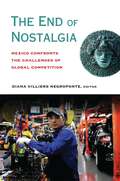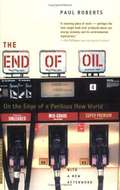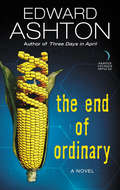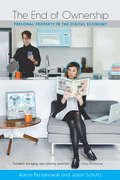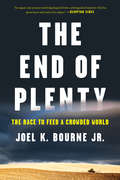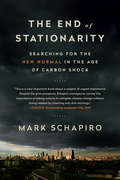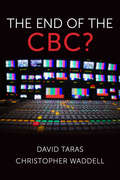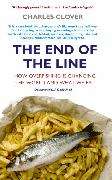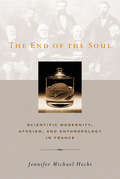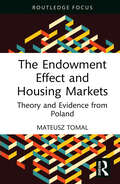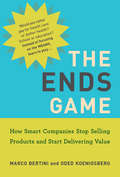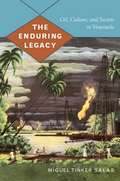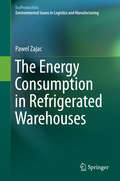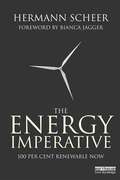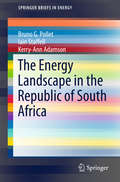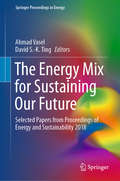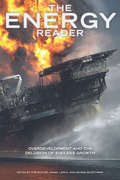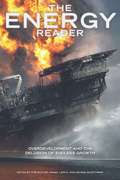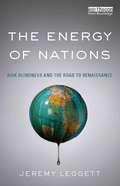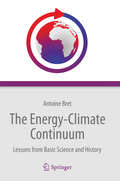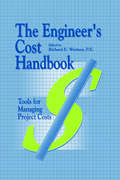- Table View
- List View
The End of Nostalgia
by Diana Villiers NegroponteToday's Mexico is strongly determined to become a full player in the globalizing international economy. It has increased its manufacturing output in areas such as automobiles and electronics, and both corporate and government sectors would like to take greater strides toward being a full global player. But do the underlying institutional and cultural elements exist to support such an economic effort?In The End of Nostalgia, editor Diana Villiers Negroponte and colleagues from both sides of the Rio Grande examine the path that Mexico will likely take in the near future. It remains a land in transition, from a one-party political system steeped in a colonial Spanish past toward a modern liberal democracy with open markets. What steps are necessary for this proud nation to continue its momentum toward effective participation in a highly competitive world?Contributors:Armando Chacón is the research director at the Mexican Institute for Competitiveness.Arturo Franco has worked with Cementos de Mexico (CEMEX) and the World Bank. He was a Global Leadership fellow at the World Economic Forum on Latin America, 2008-11.Eduardo Guerrero is a partner at Lantía Consultores in Mexico City, where he works on security assessment. He joined the Secretaría de Gobernación in December 2012.Andrés Rozental holds the permanent rank of Eminent Ambassador of Mexico. He is president of Rozental & Asociados and is a nonresident senior fellow at the Brookings Institution.Christopher Wilson is an associate at the Mexico Institute of the Woodrow Wilson International Center for Scholars.Duncan Wood is a member of the Mexican National Research System and editorial adviser to Reforma newspaper. Since January 2013, he has been the director of the Mexico Institute at the Woodrow Wilson International Center for Scholars.
The End of Oil: On the Edge of a Perilous New World
by Paul RobertsFrom the book jacket: THE SITUATION IS ALARMING AND IRREFUTABLE: Within thirty years, even by conservative estimates, we will have burned our way through most of the oil that is readily available to us. Already, the costly side effects of dependence on fossil fuel are taking their toll. Even as oil-related conflict threatens entire nations, individual consumers are suffering from higher prices at the gas pump, rising health problems, and the grim prospect of long-term environmental damage. In this frank and balanced investigation, Paul Roberts offers a timely wake-up call. He talks to both oil optimists and oil pessimists, delves deep into the economics and politics of oil, and considers the promises and pitfalls of alternatives such as wind power, hybrid cars, and hydrogen. A new afterword brings the book up to the minute. Brisk, immediate, and accessible, this is essential reading for anyone who uses oil. which is to say every one of us.
The End of Ordinary: A Novel
by Edward AshtonIn this humorous science fiction thriller, a genetic engineer and a group of teens uncover a dangerous conspiracy.Drew Bergen is an Engineer. He builds living things, one gene at a time. He’s also kind of a doofus. Six years after the Stupid War—a bloody, inconclusive clash between the Engineered and the UnAltered—that’s a dangerous combination. Hannah is Drew’s greatest project, modified in utero to be just a bit more than human. She’s also his daughter.Drew’s working on a new project now. He thinks his team is developing a spiffy new strain of corn, but Hannah’s classmate and her mysterious companion disagree. They think he’s cooking up the end of the world. When one of Drew’s team members disappears, he begins to suspect that they might be right. Soon they’re all in far over their heads, with corporate goons and government operatives hunting them, and millions of lives in the balance.Energetic and bitingly satirical, The End of Ordinary is a riveting near-future thriller that asks an important question: if we can’t get along when our differences are barely skin deep, what happens when they run all the way down to the bone?
The End of Ownership: Personal Property in the Digital Economy (The Information Society Series)
by Aaron Perzanowski Jason SchultzAn argument for retaining the notion of personal property in the products we “buy” in the digital marketplace. If you buy a book at the bookstore, you own it. You can take it home, scribble in the margins, put in on the shelf, lend it to a friend, sell it at a garage sale. But is the same thing true for the ebooks or other digital goods you buy? Retailers and copyright holders argue that you don't own those purchases, you merely license them. That means your ebook vendor can delete the book from your device without warning or explanation—as Amazon deleted Orwell's 1984 from the Kindles of surprised readers several years ago. These readers thought they owned their copies of 1984. Until, it turned out, they didn't. In The End of Ownership, Aaron Perzanowski and Jason Schultz explore how notions of ownership have shifted in the digital marketplace, and make an argument for the benefits of personal property.Of course, ebooks, cloud storage, streaming, and other digital goods offer users convenience and flexibility. But, Perzanowski and Schultz warn, consumers should be aware of the tradeoffs involving user constraints, permanence, and privacy. The rights of private property are clear, but few people manage to read their end user agreements. Perzanowski and Schultz argue that introducing aspects of private property and ownership into the digital marketplace would offer both legal and economic benefits. But, most important, it would affirm our sense of self-direction and autonomy. If we own our purchases, we are free to make whatever lawful use of them we please. Technology need not constrain our freedom; it can also empower us.
The End of Plenty: The Race to Feed a Crowded World
by Joel K. Bourne JrAn award-winning environmental journalist introduces a new generation of farmers and scientists on the frontlines of the next green revolution. When the demographer Robert Malthus (1766-1834) famously outlined the brutal relationship between food and population, he never imagined the success of modern scientific agriculture. In the mid-twentieth century, an unprecedented agricultural advancement known as the Green Revolution brought hybrid seeds, chemical fertilizers, and improved irrigation that drove the greatest population boom in history--but left ecological devastation in its wake. In The End of Plenty, award-winning environmental journalist Joel K. Bourne Jr. puts our race to feed the world in dramatic perspective. With a skyrocketing world population and tightening global grain supplies spurring riots and revolutions, humanity must produce as much food in the next four decades as it has since the beginning of civilization to avoid a Malthusian catastrophe. Yet climate change could render half our farmland useless by century's end. Writing with an agronomist's eye for practical solutions and a journalist's keen sense of character, detail, and the natural world, Bourne takes readers from his family farm to international agricultural hotspots to introduce the new generation of farmers and scientists engaged in the greatest challenge humanity has ever faced. He discovers young, corporate cowboys trying to revive Ukraine as Europe's breadbasket, a Canadian aquaculturist channeling ancient Chinese traditions, the visionary behind the world's largest organic sugar-cane plantation, and many other extraordinary individuals struggling to increase food supplies--quickly and sustainably--as droughts, floods, and heat waves hammer crops around the globe. Part history, part reportage and advocacy, The End of Plenty is a panoramic account of the future of food, and a clarion call for anyone concerned about our planet and its people.
The End of Sex and the Future of Human Reproduction
by Henry T. GreelyWithin 40 years many people will stop having sex for reproduction. After IVF and preimplantation genetic diagnosis, parents will pick embryos for implantation, gestation, and birth. It will be easy, safe, lawful, and free, Henry Greely predicts. He explains the new technologies and sets out the deep ethical and legal challenges facing humanity.
The End of Stationarity: Searching for the New Normal in the Age of Carbon Shock
by Mark SchapiroScientists have devised a new term to explain the turmoil caused by climate change: the end of stationarity. It means that our baselines for rainfall, water flow, temperature, and extreme weather are no longer relevant--that making predictions based on past experience is no longer possible. But climate change has upended baselines in the financial world, too, disrupting the global economy in ways that are just becoming clear, leaving us unable to assess risk, and causing us to fundamentally re-think economic priorities and existing business models. At the heart of that financial unrest is the role of carbon, and as the world moves toward making more and more polluters pay to emit it, a financial mystery unfolds: What are the costs? Who has the responsibility to pay for them? Who do you pay? How do you pay? And how will those costs ripple through the economy? These are the questions veteran journalist Mark Schapiro attempts to answer as he illuminates the struggle to pinpoint carbon's true costs and allocate them fairly--all while bumping up against the vagaries of the free market, the lobbying power of corporations, the political maneuverings of countries, and the tolerance of everyday consumers buying a cup of coffee, a tank of gas, or an airplane ticket. Along the way, Schapiro tracks the cost of carbon through the drought-ridden farmland of California, the jungles of Brazil, the world's greatest manufacturing center in China, the carbon-trading center of Europe, and the high-tech crime world that carbon markets have inspired. He even tracks the cost of carbon through the skies themselves, where efforts to put a price tag on the carbon left by airplanes in the no-man's land of the atmosphere created what amounted to a quiet but powerful global trade war. The End of Stationarity deftly depicts the wild, new carbon economy, and shows us how nations, emerging and developed, teeter on its brink. Originally published in hardcover as Carbon Shock, the book is updated throughout and includes a new afterword, based on the Paris climate talks.
The End of the CBC?
by David Taras Christopher WaddellThe End of the CBC? is about three overlapping crises: the crisis that has enveloped the CBC, the crisis of news, and the crisis of democracy. They are all the result to some degree of the vast changes that have overtaken and consumed the media world in the last ten to fifteen years. The emergence of platforms such as Google, Facebook, Twitter, and Netflix, the hyper-targeting of individual users through data analytics, the development of narrow online identity communities, and the rise of an attention economy that makes it more and more difficult for any but the most powerful media organizations to be noticed, have changed the media landscape in dramatic ways. The effects on the CBC and on other Canadian media organizations have been shattering. Describing the failure of successive governments to address problems faced by the public broadcaster, this book explains how the CBC lost its place in sports, drama, and entertainment. Taras and Waddell propose a way forward for the CBC – one in which the corporation concentrates its resources on news and current affairs and re-establishes a reputation for depth and quality.
The End of the Line: How Overfishing Is Changing the World and What We Eat
by Charles CloverWe have reached a pivotal moment for fishing, with seventy-five percent of the world's fish stock either fully exploited or overfished. If nothing is done to stop the squandering of fish stocks the life of the oceans will face collapse and millions of people could starve. Fish is the aspirational food for Western society, the healthy, weight-conscious choice, but those who eat and celebrate fish often ignore the fact that the fishing industry, although as technologically advanced as space travel, has an attitude to conservation 10,000 years out of date. Traveling on an industrial scale in the North Sea smashes everything it does not catch, taking 16 lbs of dead marine animals to produce just 1 lb of sole. Regulation isn't working, fishermen must cheat or lose money, dolphins and other wildlife (seabirds, turtles, sharks) are killed unnecessarily and fish stocks are collapsing despite the warnings. Because of the shortage of traditional varieties the market has moved on, competing, sometimes illegally, with local fishermen in the waters off Africa and in the Indian Ocean and plundering the high seas and the ocean depths all the way to Antarctica.The End of the Line looks at the problem and proves that we, as consumers, have to change if the situation is to improve.
The End of the Soul: Scientific Modernity, Atheism, and Anthropology in France
by Jennifer HechtOn October 19, 1876 a group of leading French citizens, joined together to form the Society of Mutual Autopsy, with the aim of proving that souls do not exist. With this group as its focus, The End of the Soul is a study of science and atheism in France in late nineteenth and early twentieth centuries. It shows that anthropology grew out of a struggle between tradition (especially Catholicism) and modernism, and that it became for many a secular religion, with such adherents as Emile Zola, Margaret Sanger, and Arthur Conan Doyle.
The End of the Soul: Scientific Modernity, Atheism, and Anthropology in France
by Jennifer HechtOn October 19, 1876 a group of leading French citizens, both men and women included, joined together to form an unusual group, The Society of Mutual Autopsy, with the aim of proving that souls do not exist. The idea was that, after death, they would dissect one another and (hopefully) show a direct relationship between brain shapes and sizes and the character, abilities and intelligence of individuals. This strange scientific pact, and indeed what we have come to think of as anthropology, which the group's members helped to develop, had its genesis in aggressive, evangelical atheism.With this group as its focus, The End of the Soul is a study of science and atheism in France in late nineteenth and early twentieth centuries. It shows that anthropology grew in the context of an impassioned struggle between the forces of tradition, especially the Catholic faith, and those of a more freethinking modernism, and moreover that it became for many a secular religion. Among the adherents of this new faith discussed here are the novelist Emile Zola, the great statesman Leon Gambetta, the American birth control advocate Margaret Sanger, and Arthur Conan Doyle, whose Sherlock Holmes embodied the triumph of ratiocination over credulity.Boldly argued, full of colorful characters and often bizarre battles over science and faith, this book represents a major contribution to the history of science and European intellectual history.
The Endowment Effect and Housing Markets: Theory and Evidence from Poland (Routledge Studies in International Real Estate)
by Mateusz TomalThis book aims to provide a comprehensive analysis of the so-called “endowment effect” in the housing market. In a nutshell, the phenomenon of overvaluing things we own which was first conceptualised in 1980 and has since been one of the most studied behavioural biases in economics.The first chapter presents a systematic review of the literature on the endowment effect in the housing market, together with the identification of research gaps to be filled by other researchers. The second chapter aims to propose a theoretical model explaining the strength of the endowment effect in sales and rental housing markets by primary and secondary markets. The last chapter presents the results of empirical research on the endowment effect in the Polish housing market, testing the model presented in Chapter 2. The chapters can be read together or independently by researchers, students, and policymakers interested in behavioural economics in housing and real estate. For policymakers, the book can be extremely useful as the endowment effect can create friction in the housing market because of a mismatch between the price demands of sellers and buyers, especially in countries where the level of market professionalisation is low (such as Poland). Thanks to the empirical research contained in this book, it will be possible to identify specific market segments where the endowment effect may be particularly elevated – on such segments, policymakers should introduce actions contributing to the elimination of this behavioural bias.
The Ends Game: How Smart Companies Stop Selling Products and Start Delivering Value (Management on the Cutting Edge)
by Marco Bertini Oded KoenigsbergRewrites the rules of commerce by pursuing outcomes rather than products; the seventh book in the Management on the Cutting Edge series comes from a definitive source--the MIT Sloan Management Review.Would you rather pay for healthcare or for better health? For school or education? For groceries or nutrition? A car or transportation? A theater performance or entertainment? In The Ends Game, Marco Bertini and Oded Koenigsberg describe how some firms are rewriting the rules of commerce: instead of selling the "means" (their products and services), they adopt innovative revenue models to pursue "ends" (actual outcomes). They show that paying by the pill, semester, food item, vehicle, or show does not necessarily reflect the value that customers actually derive from their purchases. Revenue models anchored on the ownership of products, they argue, are patently inferior.
The Enduring Legacy: Oil, Culture, and Society in Venezuela
by Miguel Tinker SalasOil has played a major role in Venezuela's economy since the first gusher was discovered along Lake Maracaibo in 1922. As Miguel Tinker Salas demonstrates, oil has also transformed the country's social, cultural, and political landscapes. In The Enduring Legacy, Tinker Salas traces the history of the oil industry's rise in Venezuela from the beginning of the twentieth century, paying particular attention to the experiences and perceptions of industry employees, both foreign and Venezuelan. He reveals how class ambitions and corporate interests combined to reshape many Venezuelans' ideas of citizenship. Middle-class Venezuelans embraced the oil industry from the start, anticipating that it would transform the country by introducing modern technology, sparking economic development, and breaking the landed elites' stranglehold. Eventually Venezuelan employees of the industry found that their benefits, including relatively high salaries, fueled loyalty to the oil companies. That loyalty sometimes trumped allegiance to the nation-state. North American and British petroleum companies, seeking to maintain their stakes in Venezuela, promoted the idea that their interests were synonymous with national development. They set up oil camps--residential communities to house their workers--that brought Venezuelan employees together with workers from the United States and Britain, and eventually with Chinese, West Indian, and Mexican migrants as well. Through the camps, the companies offered not just housing but also schooling, leisure activities, and acculturation into a structured, corporate way of life. Tinker Salas contends that these practices shaped the heart and soul of generations of Venezuelans whom the industry provided with access to a middle-class lifestyle. His interest in how oil suffused the consciousness of Venezuela is personal: Tinker Salas was born and raised in one of its oil camps.
The Enemy of Good: Estimating the Cost of Waiting for Nearly Perfect Automated Vehicles
by David G. Groves Nidhi KalraHow safe should highly automated vehicles (HAVs) be before they are allowed on the roads for consumer use? In this report, RAND researchers use the RAND Model of Automated Vehicle Safety to compare road fatalities over time under a policy that allows HAVs to be deployed when their safety performance is just moderately better than human drivers and a policy that waits to deploy HAVs only once their performance is nearly perfect.
The Energy Consumption in Refrigerated Warehouses
by Pawel ZajacThis book explores the philosophical understanding of the "energy consumption" in warehousing process that can be found in the literature. It presents known technical solutions that, if they are used in cold storage rooms, can effectively reduce energy consumption: through lower power consumption and/or energy recovery, such as the use of photovoltaic panels. The final part of the book explores the problems discussed on the basis of a concrete example - a project involving energy recovery in a refrigerated warehouse. This publication also describes the design of refrigerated warehouses, taking into account their energy intensity. In the case of logistic warehousing systems, the pallets in warehouses can offer a source of energy - namely of the potential energy stored in the loads on the shelves. Given that today's construction warehouses have heights on the order of several tens of meters, that energy can be considerable. In the case of refrigerated warehouses and cold storage facilities, it is necessary to monitor the stored goods in order to maintain a constant freezing temperature, in keeping with the requirements of the HACCP system. Inevitably, this calls for constant cooling of the air inside the warehouse, and thus produces a fixed, high and constant level of energy usage. And, just as in any other context, it becomes important to identify methods for reducing energy consumption.
The Energy Imperative: 100 Percent Renewable Now
by Hermann ScheerFor decades, Hermann Scheer was one of the world's leading proponents of renewable energy. In this, his last book before his death in 2010, he lays out his vision for a planet 100% powered by renewables and examines the fundamental ethical and economic imperatives for such a shift. And most importantly, he demonstrates why the time for this transition is now. In Scheer's view, talk of bridging technologies such as carbon capture and storage or nuclear energy even (and perhaps especially) by environmentalists is actively damaging the more the pressing agenda of the move to 100% renewable energy. Instead, he offers up examples of the technologies which are working (economically) today and details the policy and market conditions which would allow them to flourish.
The Energy Landscape in the Republic of South Africa
by Bruno G. Pollet Iain Staffell Kerry-Ann AdamsonA timely overview of the energy landscape in South Africa (RSA) is presented in this Springerbrief. The background and context to the current situation, and analysis of the policies being put forward by the government for the near future are described. Four broad areas are covered: reserves and production of fossil fuels, the electricity sector, the rapidly growing exploitation of renewable energy, and the recent push towards developing an industry around hydrogen and fuel cells. This Springerbrief presents a methodical review of the energy landscape in RSA, covering the general situation, the supply and demand for energy, and the structure of the energy sector (Chapters 1&2). Chapter 3 presents data and analysis of the country's fossil fuels, electricity generation, and the chemistry of green, future sources of energy, production and the role of industry. Chapter 4 discusses recent developments, including the impact on green jobs and green funds, and Chapter 5 reflects on the policies that have been proposed and their potential implications.
The Energy Mix for Sustaining Our Future: Selected Papers From Proceedings Of Energy And Sustainability 2018 (Springer Proceedings in Energy)
by Ahmad Vasel David S.-K. TingThis book gathers the proceedings of the Energy and Sustainability 2018 Symposium (EAS 2018) held in Windsor, Canada in June 2018. It brings together the state-of-the-art on specific aspects of the current energy status, and covers a wide range of energy and engineering systems, from internal combustion engines to electric vehicles, from the atmosphere, solar and wind, to underground geothermal and underwater turbines and energy storage. The book demonstrates how conventional internal combustion engines have advanced dramatically in terms of both performance and emissions over the past century. It also studies how life-supporting elements, such as water and greenhouses, must be prioritized and protected to ensure a sustainable future. The book offers a valuable source of information for future leaders, engineers, environmentalists, social forerunners, and decision-makers alike. It also provides a reference guide for both undergraduate and graduate students in engineering, the natural and social sciences, business and economics.
The Energy Reader
by Richard Heinberg Daniel Lerch Tom Butler George WuerthnerThe Energy Reader takes an unflinching look at the environmental devastation created by our thirst for energy-including supposedly "clean" renewable sources. From oil spills, nuclear accidents, and mountaintop-removal coal mining to oversized wind farms and desert-destroying solar power plants, virtually every region of the globe is now experiencing the consequences of out-of-control energy development. Essentially no place is sacred, no landscape safe from the relentless search for energy resources to continue powering a culture based on perpetual growth. Precious wildlands, fragile ecosystems, even our own communities and children's health are at risk.Featuring essays by more than thirty of the most brilliant minds in the fields of energy, society, and ecology, The Energy Reader lifts the veil on the harsh realities of our pursuit of energy at any price, revealing the true costs, benefits, and limitations of all our energy options. Contributors include Wes Jackson, Bill McKibben, Sandra B. Lubarsky, Richard Heinberg, Philip Cafaro, Wendell Berry, Juan Pablo Orrego. Collectively, they offer a wake-up call about the future of energy and what each of us can do to change course.Ultimately, the book offers not only a deep critique of the current system that is toxic to nature and people, but also a hopeful vision for a future energy economy-in which resilience, health, beauty, biodiversity, and durability, not incessant growth, are the organizing principles.
The Energy Reader
by Richard Heinberg Daniel Lerch Tom Butler George WuerthnerThe Energy Reader takes an unflinching look at the environmental devastation created by our thirst for energy-including supposedly "clean" renewable sources. From oil spills, nuclear accidents, and mountaintop-removal coal mining to oversized wind farms and desert-destroying solar power plants, virtually every region of the globe is now experiencing the consequences of out-of-control energy development. Essentially no place is sacred, no landscape safe from the relentless search for energy resources to continue powering a culture based on perpetual growth. Precious wildlands, fragile ecosystems, even our own communities and children's health are at risk.Featuring essays by more than thirty of the most brilliant minds in the fields of energy, society, and ecology, The Energy Reader lifts the veil on the harsh realities of our pursuit of energy at any price, revealing the true costs, benefits, and limitations of all our energy options. Contributors include Wes Jackson, Bill McKibben, Sandra B. Lubarsky, Richard Heinberg, Philip Cafaro, Wendell Berry, Juan Pablo Orrego. Collectively, they offer a wake-up call about the future of energy and what each of us can do to change course.Ultimately, the book offers not only a deep critique of the current system that is toxic to nature and people, but also a hopeful vision for a future energy economy-in which resilience, health, beauty, biodiversity, and durability, not incessant growth, are the organizing principles.
The Energy Reader: Overdevelopment and the Delusion of Endless Growth
by Richard Heinberg Daniel Lerch Tom Butler George WuerthnerWhat magic, or monster, lurks behind the light switch and gas pump? Where does the seemingly limitless energy that fuels modern society come from? From oil spills, nuclear accidents, mountaintop-removal coal mining, and natural gas "fracking" to wind power projects and solar power plants, every source of energy has costs. The Energy Reader takes an unfliching look at the systems that support our insatiable thirst for more power along with their unintended side effects.
The Energy of Nations: Risk Blindness and the Road to Renaissance
by Jeremy LeggettSystemic global risks of oil supply, climate shock and financial collapse threaten tomorrow's economies and mean businesses and policy makers face huge challenges in fuelling tomorrow’s world. Jeremy Leggett gives a personal testimony of the dangers often ignored and incompletely understood - a journey through the human mind, the institutionalization of denial, and the reasons civilizations fail. It is also an account of tantalizing hope, because mobilizing renewables and redeploying energy funding can soften the crash of modern capitalism and set us on a road to renaissance.
The Energy-Climate Continuum
by Antoine BretThis book puts the debates about the energy-climate continuum on a scientific ground! It is a must-read for everyone, who wants to understand how intimately the energy and climate debates are linked to each other, and who wants to participate in these omnipresent discussions. Antoine Bret explains in his book how fossil fuels became indispensable for our society. He carefully explains how and why this impacts the earth's climate. And he points out that all available fossil fuels will sooner or later be used up. Therefore, he introduces and discusses the alternatives, which are currently considered. The book is divided into three parts. The first part explains the problem and where we stand today, the second part critically discusses possible elements of solution. The third part illustrates historic case studies, containing both warning as well as encouraging examples of societies at turning points. This book is a careful introduction to these topics. The basic science behind the problem and the debates are introduced in an understandable and nicely readable fashion. Facts are illustrated with simple back-on-the-envelope calculations, providing a good feeling for orders of magnitudes. A rich appendix provides additional background information for the interested readers. In this way, the book can even be a valuable resource for introductory university courses in physics, climate science, natural science and many more subjects. This book is a real conversation starter and can be recommended to everyone, specialist or non-specialist, who wants to understand the actual energy-climate debates and maybe even involve.
The Engineer's Cost Handbook: Tools for Managing Project Costs
by Richard E. WestneyOffers coverage of each important step in engineering cost control process, from project justification to life-cycle costs. The book describes cost control systems and shows how to apply the principles of value engineering. It explains estimating methodology and the estimation of engineering, engineering equipment, and construction and labour costs; delineates productivity and cash-flow analysis; and more.
